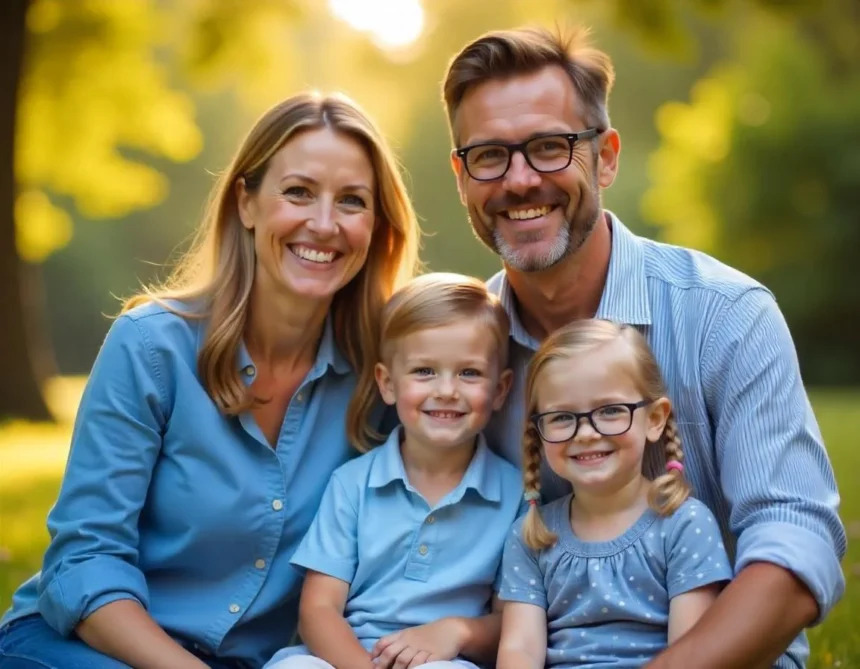Parenthood is a very personal journey, full of hopes and dreams and sometimes the daunting questions that come along. One such question that finds its way into the autistic community is: Can autistic people have kids without autism? This question goes deep into the realms of genetics, environmental factors, and the nuanced interplay between nature and nurture. In this comprehensive guide, we will talk about the possibilities, challenges, and considerations for autistic individuals contemplating parenthood.
Understanding Autism and Its Genetic Components
What is Autism?
Autism Spectrum Disorder (ASD) is a neurodevelopmental disorder, complex in nature, characterized by differences in social interaction, communication, and repetitive behaviors. It is important to note that every individual with autism presents differently; all have varying levels of abilities and challenges.
The Genetics of Autism
When addressing can autistic people have kids without autism, it’s crucial to understand the genetic underpinnings of ASD. Research indicates that autism has a significant genetic component, but it’s not solely determined by genetics. Multiple genes contribute to the likelihood of developing autism, and environmental factors also play a role.
Heritability of Autism
Some studies do suggest that the heritability of autism is substantial, with estimates ranging from 50% to 90%. This does mean that genetics play a very important role in the probability of a person being diagnosed with autism. However, it’s not a simple inheritance pattern, and having autistic parents doesn’t mean their children will definitely be autistic.
Environmental Influences
But genetics, environmental factors in pregnancy and early childhood, can contribute to the development of autism. They include prenatal exposure to certain drugs, maternal infections during pregnancy, and complications at birth. No one environmental factor has been proven to cause autism.
Can Autistic People Have Kids Without Autism?
The Role of Genetic Counseling
If the question is whether autistic people can have kids without autism, more often, individuals with autism who are considering parenthood want to know more about the possibility of passing on autism. Genetic counseling may provide much-needed insight based on their family and genetic factors.
Benefits of Genetic Counseling
- Risk Assessment: Understanding the likelihood of autism in offspring.
- Informed Decision-Making: Assisting prospective parents in making informed choices.
- Support and Resources: Providing access to support networks and resources.
Assisted Reproductive Technologies
The advances in reproductive technologies allow them to consider more options if they wish to reduce the risk of passing on autism.
Preimplantation Genetic Diagnosis (PGD)
This would involve a pre-implantation check of the embryos by PGD for specific genetic markers linked to autism. While this technology is one way of minimizing the risk, it is by no means foolproof since there is a multifactorial etiology for autism.
Adoption and Alternative Paths to Parenthood
For others, can autistic people have kids without autism can open the door to alternative routes to parenting, like adoption or fostering. Such options allow one to care for and raise children without a genetic predisposition to autism.
Raising Neurotypical Children as an Autistic Parent
Strengths of Autistic Parents
Autistic parents provide hyperfocus as well as total honesty. It is such qualities that promote and facilitate effective care for children through structure and nurturance.
Potential Challenges
The combination of parental responsibilities with the sensory and social challenges associated with autism is very challenging. Such situations require coping mechanisms and help when required.
Strategies for Success
- Establish Routines: Predictable schedules can give stability to both parent and child.
- Seek Support Networks: Interacting with other autistic parents may be a good source of information and motivation.
- Professional Assistance: Consultation with therapists or counselors may help in handling stress and learn the right ways of parenting.
The Emotional Landscape of Parenthood for Autistic Individuals
Addressing Fears and Concerns
Questions as to whether autistic people can have kids without autism are more related to being able to provide a nurturing environment and cope with the child-rearing pressures. These fears need to be dispelled with some facts and personal reflection.
Building Confidence
Education, support, and positive reinforcement can boost confidence in parenting abilities. Knowing one’s strengths and when to seek help can empower an autistic individual to embrace parenthood.
Societal Perspectives and Stigmas
Challenging Stereotypes
Societal stereotypes and misconceptions about the capabilities of autistic parents abound. Challenging such stereotypes requires increased awareness and understanding of the diverse manifestations of autism.
Advocating for Inclusivity
Creating an inclusive society that supports autistic parents and their families is critical. This can be achieved by promoting policies that would provide the needed resources and accommodations.
Personal Stories and Testimonials
Voices of Autistic Parents
Successful autistic parents’ experience in raising neurotypical children holds hope and practical lessons in life. Their experiences bring out a spectrum of life stories and practices involved in managing their parenthood.
Overcoming Obstacles
Most of the personal testimonials emphasize resilience, flexibility, and a strong support system in dealing with various challenges encountered while bringing up children.
Conclusion: Embracing the Journey
Addressing the question can autistic people have kids without autism, it is evident that even though there are genetic factors, the decision to be a parent is multi-dimensional. With the right support, resources, and an informed decision, an autistic person can certainly venture into this journey of parenthood, whether through biological means, adoption, or any other avenue. With acceptance of their unique strengths and community support, they will lead a fulfilling and enriched family life.

